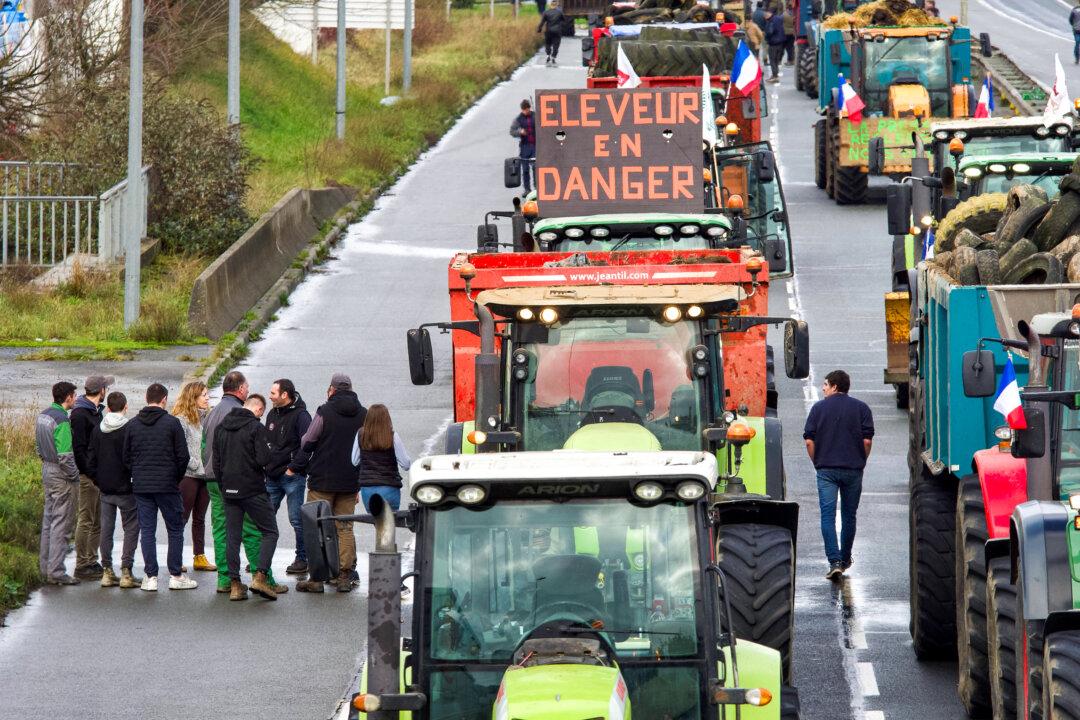French agricultural unions are prepared to mount an “indefinite siege” on Paris starting Monday, as part of ongoing protests calling for the government to roll back a range of uncompetitive regulations hurting the livelihoods of the nation’s growers and agricultural workers.
According to France’s two main farming unions, the FNSEA (Fédération Nationale des Syndicats d'Exploitants Agricoles) and the Jeunes Agriculteurs, their members are ready to converge on the French capital with their tractors and other farming equipment. All major roads will be blocked for an “indefinite period,” mimicking a medieval siege, without the bloodshed, until their grievances are solved.





